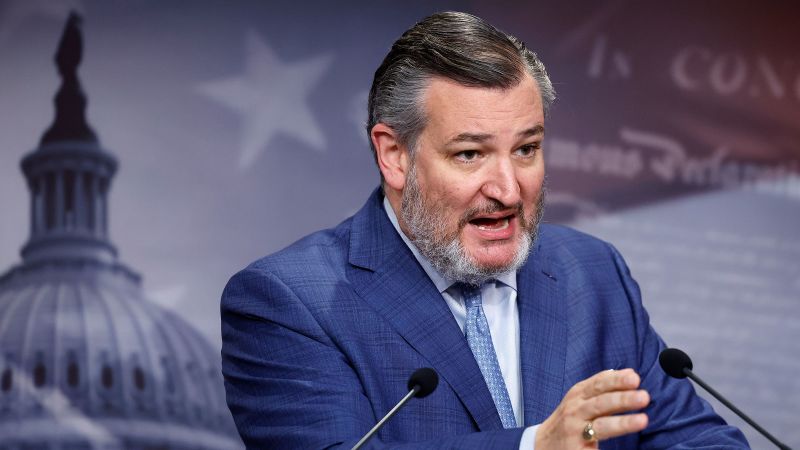Top Republicans are aligning themselves with ex-President Donald Trump’s narrative of potential election fraud in the 2024 presidential election in an effort to please their party’s presumptive nominee. Despite the absence of any current indications of irregularities in the election, leading party figures are warning that they will only recognize the election’s outcome if there is no fraud. This trend of preemptively questioning the integrity of the 2024 election has been demonstrated by figures such as Sen. Ted Cruz, who falsely claimed that the 2020 election was tainted by fraud, despite evidence to the contrary.
Cruz, among other senior Republicans, appears to be motivated by a fear of opposing Trump and risking their political careers. By casting doubt on the fairness of the upcoming election before it even occurs, they are potentially laying the groundwork for a challenge to the results if Trump loses. This trend represents a serious threat to democracy, especially given the likelihood that the 2024 election may be decided in swing states by a small margin, potentially leading to prolonged legal battles and further tarnishing of the democratic process.
Trump’s renewed denial of the 2020 election results, coupled with his false claims about widespread fraud, has been adopted by many Republican voters despite being debunked by courts and election officials. This denialism has created an atmosphere where senior party figures feel compelled to align themselves with Trump’s narrative, even at the expense of the democratic process. Former South Carolina Gov. Nikki Haley’s recent decision to support Trump, despite previous criticisms, highlights the power and influence Trump maintains within the GOP.
Raising doubts about the integrity of the 2024 election before it occurs plays into Trump’s false narrative and creates unnecessary tension and uncertainty around the electoral process. Senior Republican figures like Ben Carson, Byron Donalds, and Marco Rubio have all expressed reservations about accepting the election results if they believe the process was unfair, echoing Trump’s unfounded claims about election fraud. This trend underscores the deep divisions within the party and the lengths to which some members are willing to go to maintain Trump’s favor.
The GOP’s reluctance to unequivocally state that they will accept the results of a free and fair election reflects their loyalty to Trump and their willingness to perpetuate baseless claims of fraud. The insistence on contesting election results and using legal challenges to challenge outcomes mirrors the tactics employed by Trump after his loss in 2020, highlighting a troubling trend in the modern Republican Party. The refusal to accept electoral outcomes as legitimate, even before the election takes place, poses a serious threat to the democratic process and the peaceful transfer of power.
Despite academic studies and legal cases showing that fraud in presidential elections is rare, Republicans continue to sow doubt about the integrity of future elections, potentially undermining the public’s confidence in the electoral process. The willingness of senior party figures to embrace Trump’s unfounded claims of fraud speaks to the power and influence he maintains within the GOP and the party’s willingness to prioritize loyalty to the former president over the principles of democracy. This trend of preemptively challenging election results sets a dangerous precedent and threatens the foundation of American democracy.













